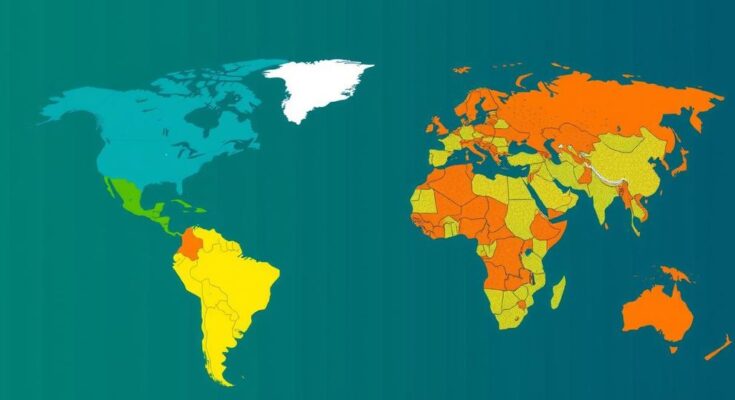Wealthier nations are beginning to compensate poorer countries for climate change-related damages, illustrated by Cyclone Freddy’s impact in Malawi. Approximately $720 million has been pledged for ‘loss and damage’ funds; however, experts caution this may not be sufficient as climate disasters escalate. The COP29 climate summit is crucial for negotiating these financial commitments, emphasizing the need for wealthy nations to assume responsibility for their emissions and the effects they impose on vulnerable populations.
In the face of increasingly severe climate disasters, wealthier nations are beginning to provide financial compensation to poorer countries for damages incurred due to climate change. The recent example in Malawi highlights this shift, where Cyclone Freddy caused widespread destruction, displacing approximately 650,000 individuals from their homes. Christopher Bingala, a subsistence farmer, received a payment of around $750, enabling him to rebuild his home after enduring a devastating loss.
This compensation is a manifestation of a new funding initiative known as “loss and damage.” Such funds aim to specifically address climate change-related impacts that disproportionately affect low-income countries, which largely contribute the least to greenhouse gas emissions. As of now, around $720 million has been pledged by several nations, including the European Union and the United States, yet experts caution that this amount may not suffice given the escalating number of climate-related disasters.
During the COP29 climate summit in Baku, Azerbaijan, discussions are underway regarding the distribution of these funds and the responsibilities of developed nations. Prime Minister Philip Davis of the Commonwealth of the Bahamas emphasized the necessity for accountability, stating, “We just hope that the global north and the nations whose economy is fueled by the emissions – they come to the plate and take up their responsibility to look at what they’re causing us.”
For Christopher Bingala and many others like him, the funds provided them with a much-needed lifeline. The assistance allowed Bingala to relocate to a less flood-prone area, ensuring the safety and well-being of his children. The funds in Malawi are part of a pilot program, initiated by the Scottish government and administered by the nonprofit organization, GiveDirectly, which has aimed to aid those in dire need without any conditions attached. This pilot program serves as a model for a larger system designed to offer financial assistance to nations grappling with climate-related losses.
However, many low-income nations argue that the proposed funding must extend beyond mere disaster recovery to include preventative measures, such as resettling communities threatened by rising sea levels. The need for such funding is anticipated to rise dramatically, potentially reaching $250 billion per annum by the year 2030. Therefore, the expectation is for wealthier countries to increase their contributions, as the repercussions of climate disasters often transcend national boundaries. Prime Minister Davis astutely noted, “When my islands are swallowed up by the sea, then what do my people do? They will either become climate refugees or they will be doomed to a watery grave.”
The situation underscores a critical moment in global climate policy, as nations strive to address the discrepancies in their contributions to climate change and the resultant damages experienced by the world’s most vulnerable communities.
The discussion surrounding climate change and its socioeconomic impacts has intensified, particularly regarding the obligations of affluent countries to support poorer nations. With low-income countries disproportionately affected by climate disasters, the concept of “loss and damage” compensation has emerged as a vital framework to provide direct assistance to those impacted. As nations grapple with the increasing frequency of extreme weather events, establishing a reliable funding mechanism has become imperative to mitigate the adverse effects on vulnerable populations. The ongoing COP29 summit is a pivotal moment for negotiating the specifics of these financial commitments and addressing the urgent needs of developing nations.
In summary, rich countries are slowly beginning to acknowledge and address the consequences of climate change on poorer nations through financial mechanisms aimed at compensating for losses incurred from climate-related disasters. The cases like that of Christopher Bingala in Malawi illustrate the profound impact these funds can have on individuals and communities struggling to recover from devastating events. As international discussions continue, the need for a robust and comprehensive funding system to address both disaster recovery and preventive measures is more crucial than ever, as climate change poses an existential threat to low-income nations globally.
Original Source: www.waer.org




